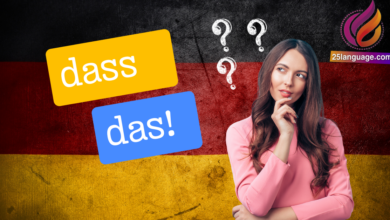Plural Nouns in German Grammar

A plural noun expresses that there is more than one person, object, idea etc. To form plural nouns in German, we can add –n/-en, -e, -r/-er, or -s to the end of the noun. The rules for plural noun formation in German grammar are listed below.
Learn everything you need to know about the formation of plural nouns in learning German online and test your knowledge.
Example

die Geldscheine
die Münzen
das Geld (no plural)
Plural Noun Endings in German Grammar
German plurals are formed by adding –n/-en, -e, -r/-er, –s. Some nouns are the same in their singular and plural forms e.g. die Löffel whilst others are mostly used in the singular e.g. die Milch or plural form e.g. die Eltern. The ending of a nouns give us a clue as to which plural ending to use.
Below is a summary of word endings and their typical plural endings. Be aware that there are many exceptions to these rules.
Add -n/-en
Here is a list of German noun endings that form the plural with -n or -en:
- masculine nouns with the endings -e, -ent, and, -ant, -ist, -or
- Example:
- der Student – die Studenten
- feminine nouns with the endings –e, -in, -ion, -ik, -heit, -keit, -schaft, -tät, -ung
- Example:
- die Nation – die Nationen
-
in the case of feminine nouns that end in -in, the n is doubled
- die Lehrerin – die Lehrerinnen
- the endings -ma, -um, -us in foreign words are usually replaced by –en
- Example:
- das Thema – die Themen
Add -e
Here is a list of German noun endings that form the plural with -e:
- masculine nouns with the endings –eur, -ich, -ier, -ig, -ling, -ör
- Example:
- der Friseur – die Friseure
- many single-syllable feminine nouns
- Example:
- die Hand – die Hände
-
an umlaut is added to the plural form
Add -r/-er
Here is a list of German noun endings that form the plural with –r or -er:
- many single-syllable neuter nouns
- Example:
- das Wort – die Wörter
-
an umlaut is often added to the plural form
- To note: feminine nouns never form the plural with –r/-er.
Add -s
Here is a list of German nouns endings that form the plural with -s:
- masculine, feminine, and neuter nouns with the endings –a, -i, -o, -u, -y
- Example:
- der Opa – die Opas
- das Auto – die Autos
- die Mutti – die Muttis
- das Hobby – die Hobbys
- family names
- Example:
- die Lehmanns
No Plural Ending
Here is a list of German noun endings that don’t change in the plural form:
- masculine nouns with the endings –el, -en, -er
- Example:
- der Löffel – die Löffel
- neuter nouns with the endings –chen, –lein
- Example:
- das Mädchen – die Mädchen
Singular or Plural
- Most nouns can be used in the singular and the plural.
- Example:
- der Geldschein – die Geldscheine
- die Münze – die Münzen
- Some nouns tend to be used only in the singular.
- Example:
- das Geld, der Hunger, die Milch
-
There is a plural form, “die Gelder”, but this has a different meaning.
- Some nouns are used only in the plural.
- Example:
- die Eltern, die Leute, die Ferien
- At last you can use plural nouns in German correctly. You can get German Keyboard for accurate translation.




























